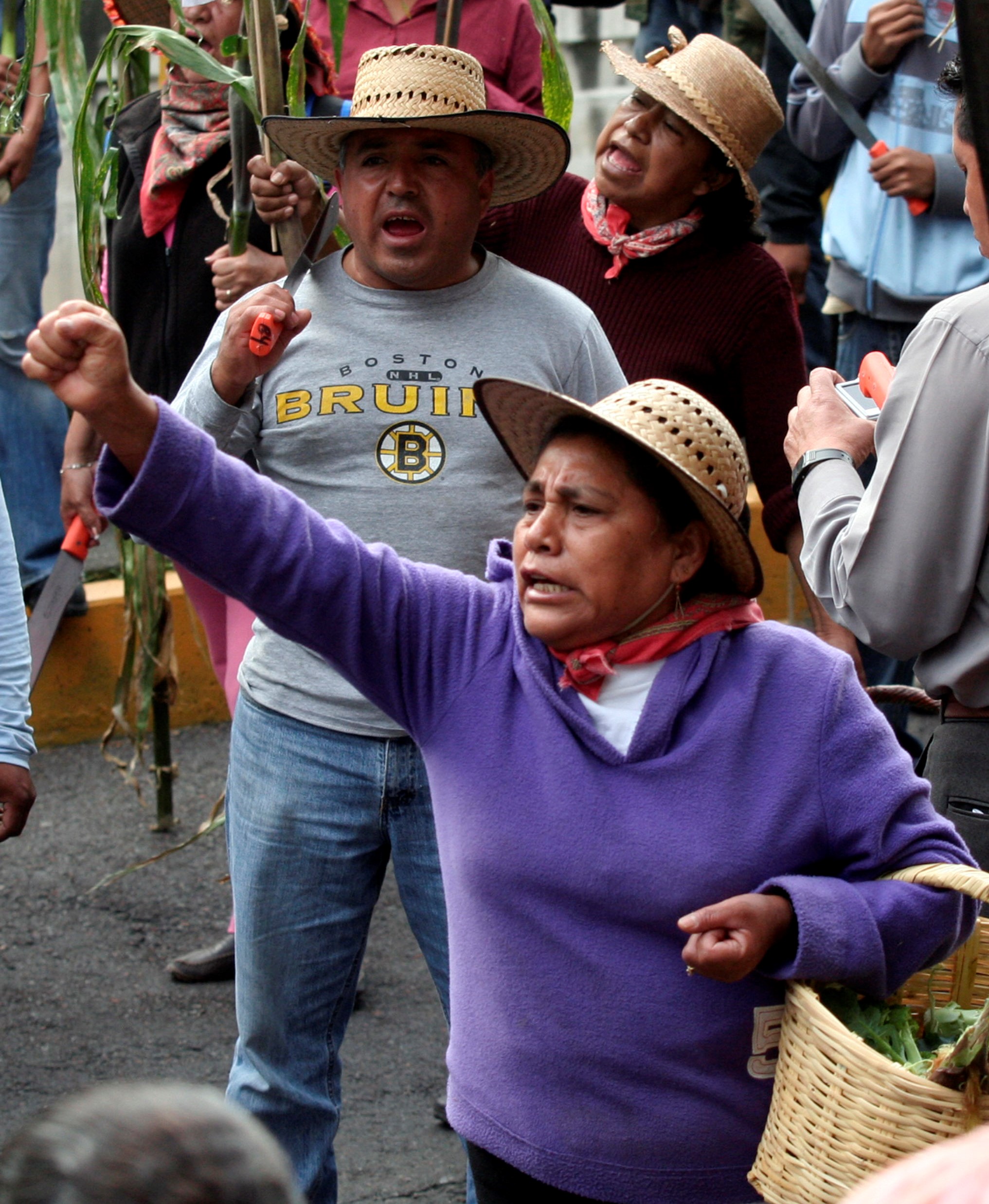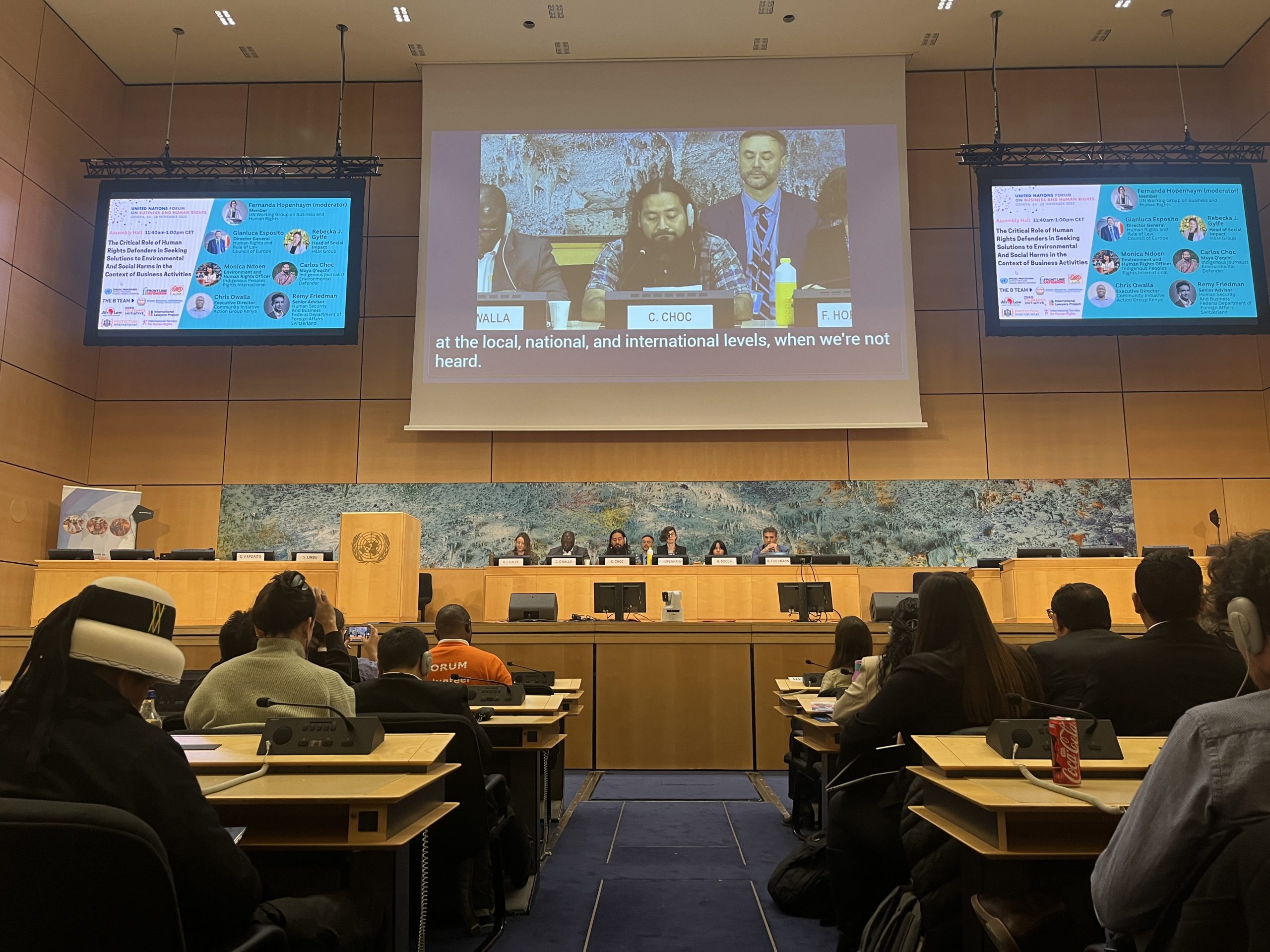Six UN experts have expressed grave concerns in a recent joint letter to the Mexican Government, made public this week, about the human rights and environmental consequences of major development project ‘Mayan Train’. In an important move, the letter was also sent to UN-Habitat, whose support to the ‘Mayan Train’ -alongside that of other UN agencies, including UNESCO and UNOPS- appears in strong contradiction with other positions taken by the UN, in particular the Office of the High Commissioner for Human Rights. In 2019, the Office’s country office had already noted publicly the failure of the Government’s consultation processes with indigenous communities to meet international standards.
In order to comply with international standards and obligations, the experts underscore the need for any consultations with affected communities to be ‘conducted with the representative structures identified by those indigenous communities themselves’, and that they are based on the ‘necessary information, including results from environmental impact assessments’: those guarantees must be implemented before the project starts.
During a panel discussion on indigenous human rights defenders at the 45th session of the Human Rights Council in September, Mexico delivered a joint statement urging States to take specific measures to ‘create the conditions for the free determination of their development process and well-being’, and to observe the ‘obligations in relevant international instruments such as ILO’s Convention No. 169’, that enshrines the right to free, prior and informed consent.
‘It is very difficult to build trust around a project of that scale, where an adequate environmental impact assessment is missing, and information is kept partially secret given that sections of the railway have been entrusted to the Secretary of National Defense (SEDENA)’, said Raphaël Viana David, from the International Service for Human Rights (ISHR). ‘Transparency is instrinsical to a strong human rights-compliant approach, an absolute prerequisite for the project to move forward’.
In a joint statement released today, ISHR, together with CEMDA, CRIPX, CMDPDH, DPLF and PODER, urge the Mexican Government to swiftly respond to the experts’ concerns, and halt the ‘Mayan Train’ project until all human rights and other guarantees under ILO Convention 169 and relevant international treaties have been fully implemented.
‘There may be many obstacles to fulfilling its obligations, the first of which being the lack of political will’, said Viana. ‘we would like to hear from the Mexican Government why they are not talking to affected communities in the way they are required to’.
Translating international commitments into action on the ground
Of particular concern is that several organisations, including some among the signatories to the joint statement, were subject to repeated harassment and defamation, in a number of media outlets and in a declaration by Mexican President López-Obrador to the press on 28 August, blaming them for reportedly ‘receiving foreign funds to oppose the project’. These acts were publicly denounced by civil society organisations, including during the September session of the Human Rights Council.
Yet, the ‘Mayan Train’ case is not isolated, but rather emblematic of broader and alarming trend of attacks against human rights defenders overall, and women human rights defenders in particular. In June, chilling threats made by an organised crime group to Consorcio Oaxaca spurred Mary Lawlor, the Special Rapporteur on human rights defenders, to express public preoccupation about ‘intimidation, threats and killings targeting women human rights defenders’. No later than last week, a preventive press release by another group of experts, ahead of the 16 Days of Activism against Gender-Based Violence, stressed the need for ‘accountability for the way police officers treat women protesters and women human rights defenders, who play a crucial role in promoting women’s right to a life free from violence’, following police repression against feminist protests in Cancún.
It is against this background that the Mexican Senate, urged by the Executive, still voted to cut the funds of the National Protection Mechanism for Human Rights Defenders and Journalists last 21 October. ‘National protection mechanisms play a vital role in guaranteeing the safety of defenders, particularly in countries like Mexico’, said Viana. ‘But publicly recognising the essential role defenders play, and refraining from any type of intimidation or smear, are also powerful tools of ‘soft’ protection for them’.
Mexico has also taken some important steps in the right direction, markedly the ratification of the Escazú Agreement, allowing for the entry into force of this landmark regional treaty protecting environmental defenders and promoting environmental justice, participation, and transparency.
‘For them to be meaningful, it is crucial that Mexico’s international commitments be translated into genuine efforts to support and protect defenders at the national level’, stressed Viana. ‘This entails a number of key measures, including to promptly restore adequate funding to its national protection mechanism’.
In its bid for a seat in 2021 at the Human Rights Council, the UN’s top deliberative body for human rights, Mexico placed a feminist agenda high in its priorities, and pledged to strenghten protection of journalists and defenders, recognising their role in maintaining a ‘healthy democracy’. Mexico’s reelection to, and long-term membership at, the Human Rights Council represents both an opportunity it should embrace to implement such commitments, but also a heightened responsability not to leave those commitments -to support to civil society, or to advance women’s rights- only for the appreciation of international peers in Geneva and New York. In doing so, it should address the recommendations listed by a group of national and international rights groups prior to its reelection.
For more information, please contact Raphaël Viana David at [email protected], or on Twitter at @vdraphael.
Image credits: Flickr / Jesús Villaseca Pérez




